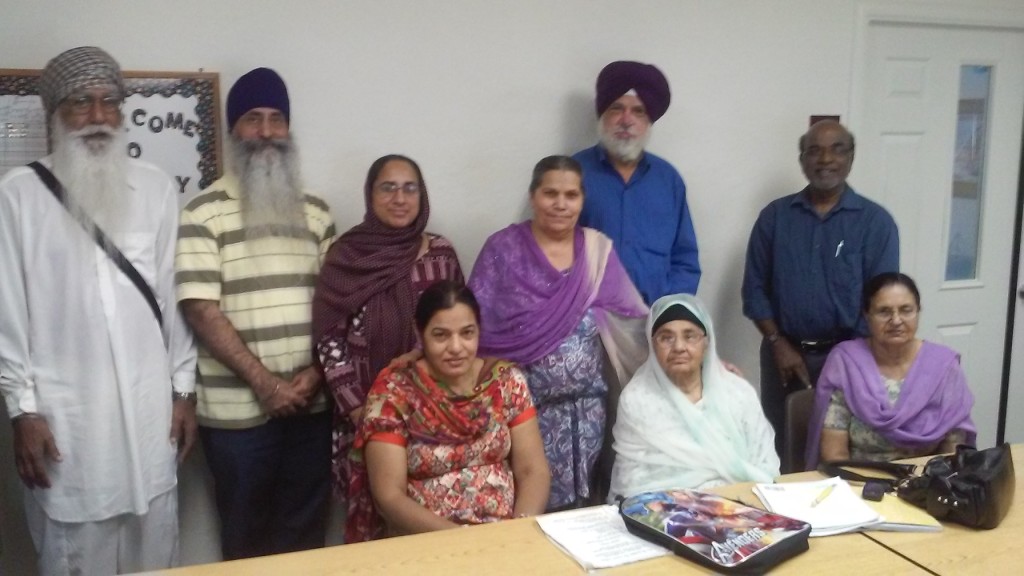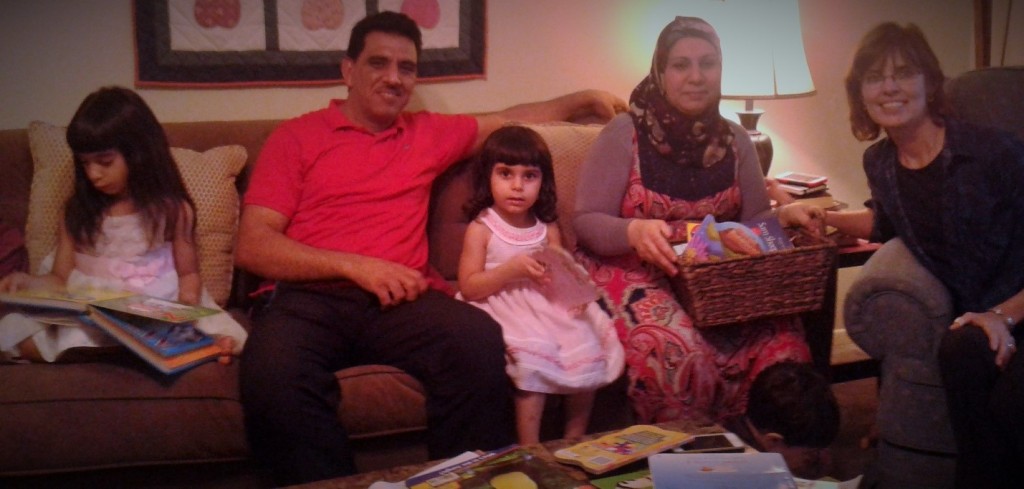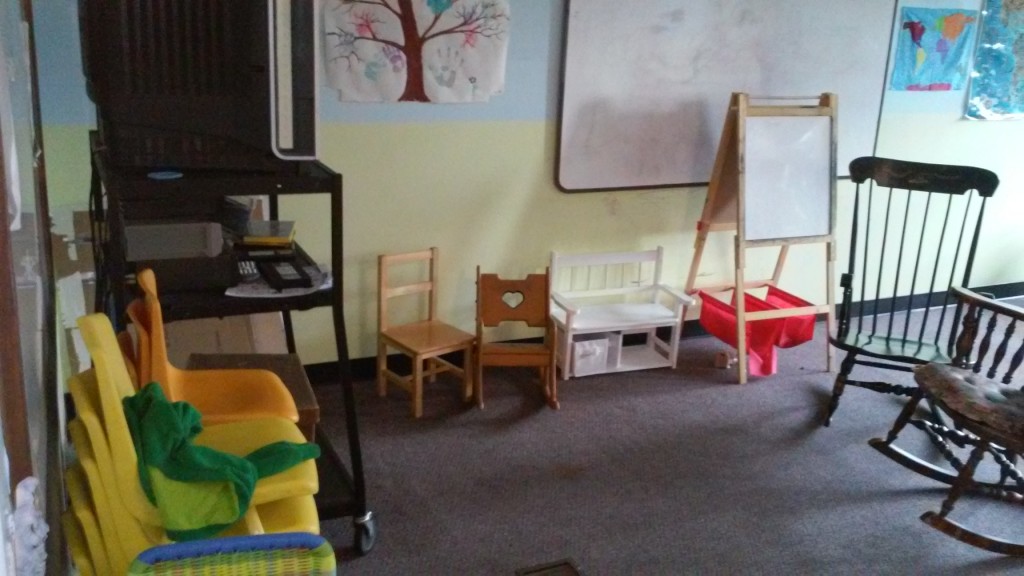These are some notes from one of our Bible study times at our recent team retreat. Please excuse parts that are rough; notes were taken as ideas were shared.
How would Jesus treat a foreigner? This is a text which offers a definitive answer. (Gospel of John chapter 4)
Who was this woman?
– half-breed Jew (a people whose origin dates back to the Assyrian captivity)
– her life experience includes a long list of broken relationships with men
– she’s the opposite of Nicodemus (ch 3)
– a 2nd class citizen (classic „underserved“ person)
– Samaritans were hated by the Jews
Jesus „had to pass through Samaria.“ (v.4) He chose intentionally to meet with her on foreign soil, i.e., a foreign context for Him, but a familiar neighborhood/context for the Samaritan(s). Baffling that He was preaching to Israel at this time, giving them a chance to receive Him, yet He meets with this single individual.
God is concerned with the individual; thus, Jesus purpose was to meet/interact/confront this lowly individual (a seeker?)
Noon-day meeting = personal sacrifice. It was hot!
The woman came to the well alone, which says something about her low social status.
Jesus begins with a request/need. Jesus initiated contact with foreign woman by asking for her help.
He confronts the Samaritan woman’s belief system, which causes her to question.
There is shock value in his statement in verse 8: „Will you give me a drink?“ The woman responds, „You want to put your Jewish lips to my Samaritan cup? (You know as well as I that that just is not done!)“
Jesus is well aware that this woman is dying of thirst – spiritually.
First Jesus asks her for water, and then he offers her living water. In so doing, he impresses upon her how parched her soul is and how great her spiritual thirst is.
LESSON: CULTURAL DIFFERENCES TAKE A BACK SEAT TO THE SPIRITUAL NEEDS OF OTHERS
Jesus is Jesus – He operates on a higher plane. His behavior (vv.9-14) personifies:
– True humility
– Genuine compassion/empathy
– Self-sacrificing love that is willing to get involved
„Fountain of water“ (v. 14) Jesus took her from her felt need to her deeper inner needs. He enters into her story; Jesus gives more than just a gospel presentation of truth(s). Jesus enters into life narrative of this ostracized woman.
Jesus proceeds beyond her physical needs with His probing questions. God prompts us to go beyond just meeting physical needs. The Holy Spirit gives wisdom as to what questions to ask, to probe matters of the heart.
The Samaritan woman lived in a world in which categories such as class, race and gender were pivotal. Jesus broke through these artificial walls of segregation. Where Jesus interacts with individuals in the gospels, it is the person, not his status, which becomes His focus.
[Jesus flips the switch and the dialogue moves to truth-telling and true worship issues.]
And yet, he did draw lines (vv.20-24); there were limits in His level of tolerance, (even for Jesus). He never says, „It does not matter what you believe.“ Instead, He clearly states, that it is not ok simply to be tolerant of others and their belief system.
Jesus clearly states in this passage, that it does make a difference to which God you pray.
Worship God? It is not a matter of where, but how! When the Samaritan woman wants to claim that she and her people are the ones who are doing it right, Jesus objects. He makes it clear that there is a right and a wrong way to worship.
LESSON: CULTURAL DIFFERENCES NEVER TRUMP THE TRUTH
The truth we proclaim is often not understood; we need the Holy Spirit to „translate“, move the hearts of others, lift the veil
John 6,44: God the Father must draw others to Himself; He creates thirst and our role is to point them to Jesus
There is a gradual approach evident here: presence, interest, felt need, concern, deeper need When she is ready to hear it, Jesus proclaims „I am He“ (the Messiah). She acknowledges that He is indeed the long-awaited Messiah.
This passage/narrative/experience gives Jesus street credibility to send His followers out to make disciples of all nations.
„The fields are white/ripe for harvest“ (v.35) Jesus tells His disciples to look out to the horizon where they see a crowd moving towards them en mass. It is very possible that what they see is a crowd of white robed Samaritans headed their way. He is telling His disciples, „That is your mission field and it is a field ripe for plucking.“ Jesus sends His disciples to a people group with whom they have little in common, and with whom they have been at odds for generations.
This is a foretaste of that which will be revealed to them in the years ahead, ushering in the „church age.“ “His purpose was to create in himself one new humanity out of two, thus making peace, and in one body to reconcile them both to God through the cross, by which he put to death their hostility.“ (Eph. 2,16).
LESSON: THE SPIRITUAL UNITY IN CHRIST SUPERSEDES CULTURAL DIFFERENCES
Many believe (v.41), and it all started with a questionable witness who said, „Come meet a man who told me everything I ever did“ (v.39) The Samaritan villagers acknowledge that Jesus is their Savior (a spiritual, not a military Messiah), and the Savior of the whole world.
![]() Tweet This One of the “near frontiers” in your area is the international airport.
Tweet This One of the “near frontiers” in your area is the international airport.







